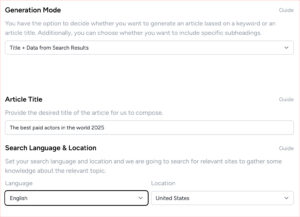Here at Topcontent, we want to help you create the ultimate search engine optimised website. From implementing linking strategy to writing perfect SEO titles, we want your site to be the best it can be. In this blog post, we’ll be discussing favicons – those little images you can see in the corner of your browsing tabs.
You might not have given them much thought before now. But are favicons important for SEO? Let’s take a look.
First, what exactly is a favicon?
You can brush up on the full history of favicons here, but essentially they are a small icon displayed in browsers associated with a website or brand. Derived from the words ‘favorite’ and ‘icon’, a favicon should be instantly recognisable. Everyone associates the white ‘f’ on a blue background with social media or our red ‘T’ with top-quality content. You should try to make your website’s favicon the same as your logo. This will create consistency across all of your platforms.
Favicons show up in multiple places, including browser history and the bookmarks bar:
Or while browsing on a mobile device:
What are the guidelines for a favicon?
You can read Google’s guidelines in full here, but we’ve summarised them for you.
- Your favicon file and site homepage cannot be blocking Google from crawling them.
- Your favicon should represent your brand in image format, making it easily identifiable to customers.
- Your favicon should be a multiple of 48px square. It can be in any valid format but you need to make sure it looks acceptable in 16x16px. This is how Google will display it in search results.
- Your favicon should have a stable URL. Do not change this regularly.
- Your favicon should not include any images or words Google deems inappropriate. It will be replaced by a generic icon if it does.
So are favicons important for SEO?
In theory, a favicon will have no bearing on your website’s ranking in Google’s SERPs (find out more about what will here). But not having a favicon means Google will designate your website a generic icon when customers are browsing.
Favicons appearing in SERPs while mobile browsing is a fairly new development from Google implemented last year. Now, they’re rolling out changes across desktop searches too. Your browser might soon look something like this:
This means that favicons are more important than ever. While they might not directly impact your SERP rank result, they can influence whether a client clicks on your site.
Let’s look at an example.
If someone is browsing on a mobile for loose-leaf tea, the search results might look something like this:
As you can see, Stash Tea and Art of Tea both have their logos as their favicon. Birchall Tea, however, either has no favicon or one that violates the guidelines set out by Google. Instead, it has been designated a generic world icon as a favicon.
What impact could this have on your customers?
- A favicon can also act as a marker of professionalism. When your potential customers are perusing their options, a website without a favicon will stand out – and not in a good way. Having a favicon could signal to a consumer that you’re a brand to be trusted. If your competitors all have professional-looking favicons and you don’t, that could cost you sales.
- If a customer has lots of tabs open, they might be more likely to eliminate the ones they can’t instantly recognise when making their final decision. A tab with a generic icon will likely be the first to go. Remember, branding is crucial to standing out.
- If customers are bookmarking websites, a favicon will allow them to quickly identify brands in a long list. It’s more likely their eye will skip over those sites with generic icons provided by Google. An identifiable favicon will make them remember why they bookmarked your site in the first place.
So back to the question, are favicons important for SEO? They won’t necessarily affect your position in Google’s rankings. But are they important for credibility, establishing a reputation and creating brand awareness around your company? 100%.
Check out our round-up of the best websites to generate your own favicon.
What’s next?
Once you’ve got your website looking reputable with a recognisable favicon, it’s time for the rest. We provide everything from blog posts to product descriptions to help your website stand out. Contact us today for a free quote.




